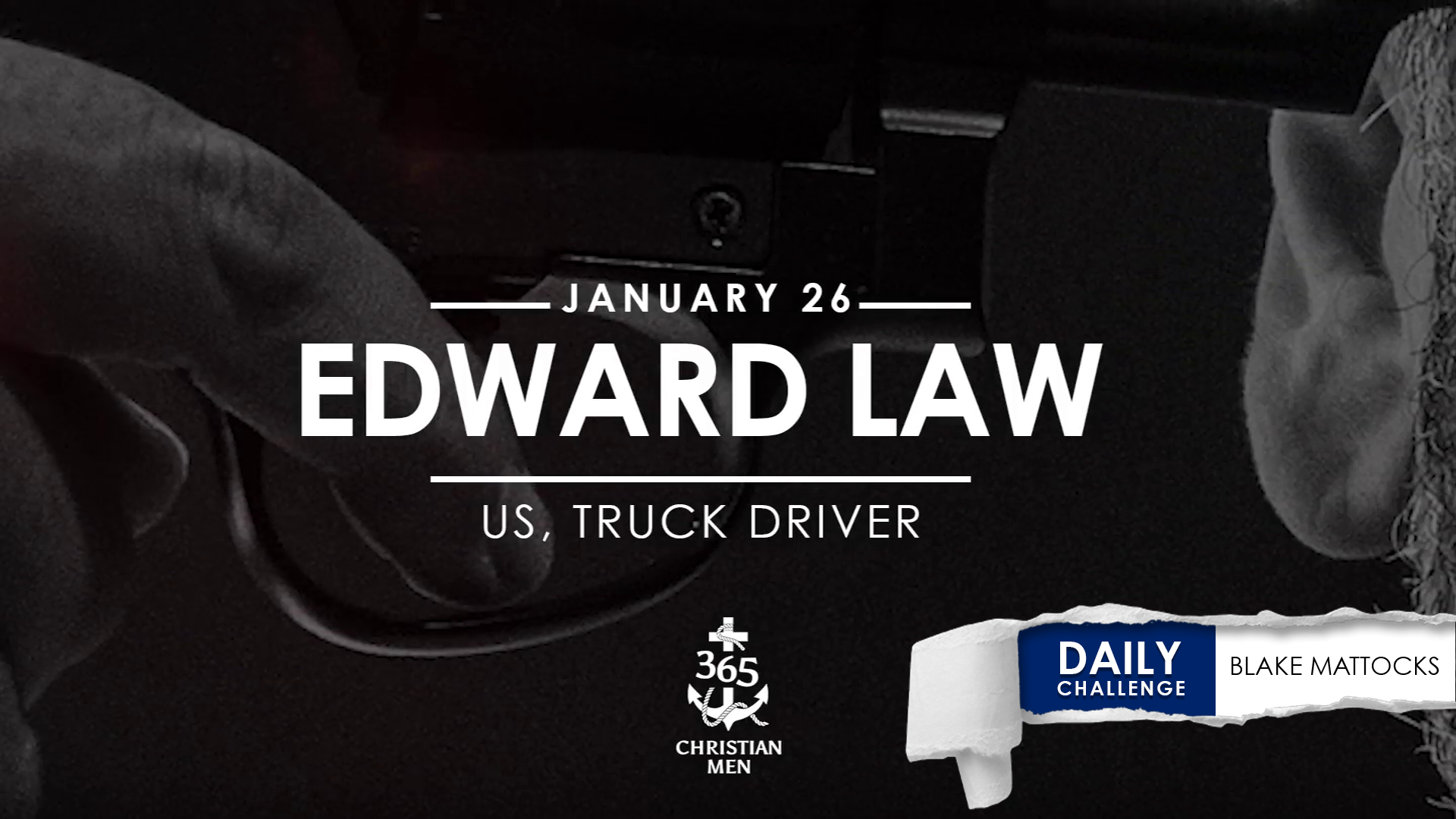February 3. Mel Trotter. On this date in 1900, Mel was appointed Superintendent of Grand Rapids Rescue Mission. He ran the mission for his forty years and helped start sixty-seven other Rescue Missions across the country. Here’s how his story started.
What seems impossible with men is entirely possible with God.
Mel pushed open the door to his little house—what was left wasn’t much of a home. He had drunk most of it away until all that was left was a cold shell. His marriage too. This time his drunk had lasted ten days.
Now, the house was strangely quiet. There sat his wife Lottie rocking back and forth, their two-year-old in her arms.
Mel stepped closer. But the little fellow didn’t move, and there was a strange color to his skin. The boy was dead.
Mel fell to his knees.
A guttural cry rose from so far inside him it sounded as if it was from someone else. He was a slave. A slave to liquor and a murderer. “I’m anything but a man!” Mel groaned. “I can’t stand it, and I won’t stand it!” He would end his life. That’s what he would do.
But death meant facing God, and he didn’t have the courage for that. Emotion drove Mel from the house, but he couldn’t outrun the painful reality.
When he returned, his wife led him into the little room where she had laid their son in a tiny white casket she had made herself. “Promise me you’ll never take another drink, Mel Trotter. Promise!”
Mel put his arm around her. “I’ll never touch liquor again, not as long as I live.”
She nodded and prayed for him. He wanted to keep his word, but deep down he knew. He was a slave to the devil. He made it through the funeral before having his next drink, but not two hours after his child was put into the grave, he stumbled home, dead drunk.
Mel left his wife. He had nothing left. For a while he wandered the streets of Chicago.
One night, staggering along Van Buren Street, Mel headed for Lake Michigan. There he would plunge into its icy waters and eternal damnation. He had lost everything and everyone, tried again to be sober, and failed as usual.
Not even his fear of meeting God mattered now. The drink had him, and nothing could be done about it. He winced as his bare feet, numb from the snow, began to pulse. He had sold his shoes for one more drink. Mel stumbled as he passed Pacific Garden Mission. The doorkeeper invited him in and took him to a chair along the wall where he could lean back and not tumble out of it.
The man up front locked gazes with him. He stopped the singing and told everyone to bow their heads. “O God,” he prayed, “save that poor, poor boy.”
The man then talked about how once he had been a drunk, but the Lord had saved him. At the end he told those gathered to raise their hands to let Jesus know they wanted to make room for Him.
Mel raised his hand and then rushed to the front. The man told him, “Jesus says, ‘All those the Father gives me will come to me, and whoever comes to me I will never drive away’” (John 6:37 NIV).
Suddenly, Mel remembered the story he had heard so many times. He saw Jesus carrying the cross, men spitting at him and shoving a crown of thorns on his head. And Mel understood that Jesus did it for him. He saw Jesus start up the steep hill, falling beneath the weight of his cross. He saw Jesus willingly give up his life for him. That glimpse of Jesus was one he never for an instant lost again.
Mel never touched another drop of liquor.
What in your life is a seemingly impossible situation? Why not invite God’s strength into it right now? What seems impossible with men is entirely possible with God.
Henry, Carl F. H. The Pacific Garden Mission. Grand Rapids: Zondervan, 1942.
“A Testimony of Mel Trotter” from Stories with a Message, Selected and Edited By Duane V. Maxey. Accessed September 25, 2020. http://www.the-new-way.org/testimonies/conv_varie_083_a_testimony_of_mel_trotter.html.
“History.” Accessed September 25, 2020. MEL TROTTER MINISTRIES. https://www.meltrotter.org/themission/history.
Story read by Peter R Warren, https://www.peterwarrenministries.com/














